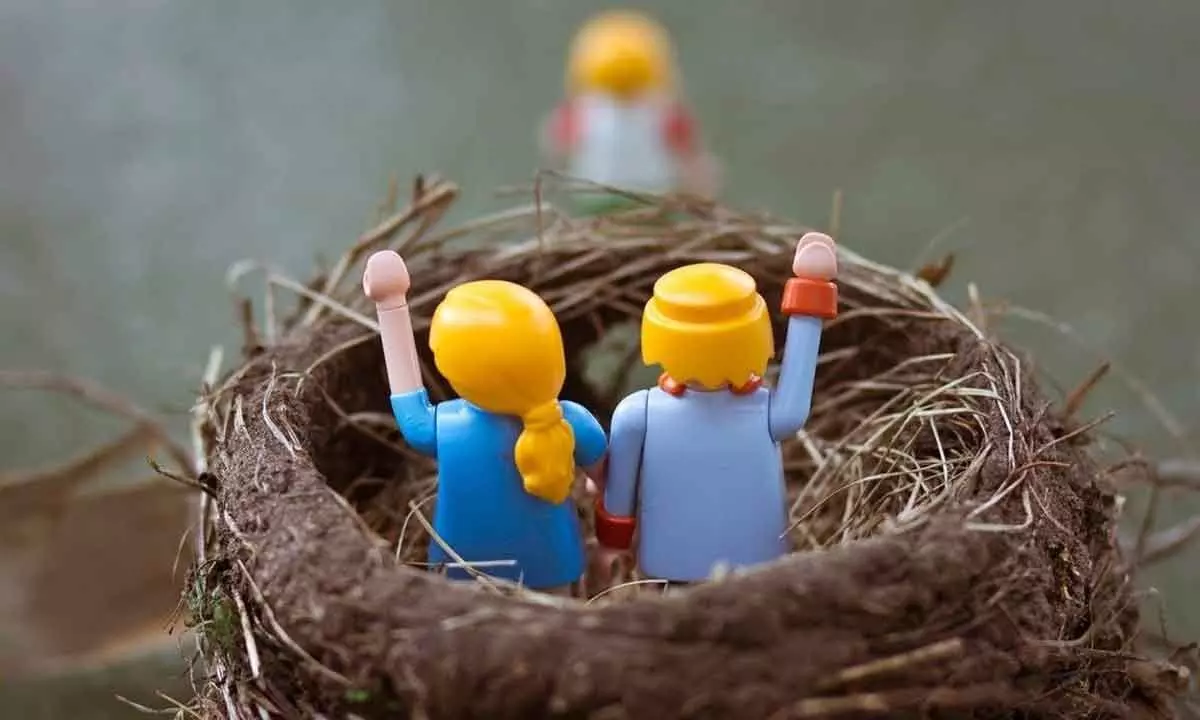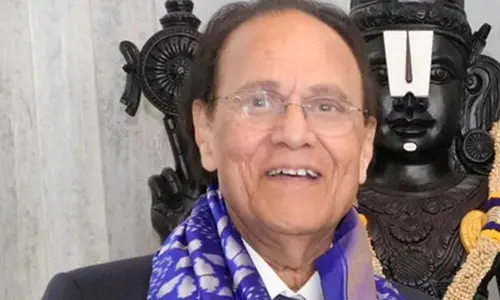Healthy ageing & empty nest syndrome

Long or short, what really matters in life is its quality. There is this Telugu saying, which states that a life span of six months, as a swan, is far better than living for long years, as a crow. Then there is ‘Empty Nest Syndrome,’ a state of being distressed, sad and experiencing complicated emotions, on account of being left alone
The United Nations Organization has dedicated the decade (2021–30) to ‘Healthy Ageing’. It is the subject of longevity, and its pros and cons, that this article will touch upon. In March 2019, I was approached by a group of persons in Hyderabad with the request that I become the Chairperson of the Advisory Committee for ‘Elder Spring,’ an organization set up for providing services to elderly people. They were proposing to start, sponsored by Vijay Vahini Charitable Trust, a sister concern of Tata Trusts, in April 2020, and at the request of the Telangana state government, the initiative covered the entire state. The Government of India, taking note of the unique initiative and its remarkable initial success, proceeded to replicate it all over the country through a programme known as ‘Elder line’ anchored in the Ministry of Social Justice and Empowerment.
Cultures all over the world regard longevity as a blessing. That is because it is generally believed that when people live longer, they get an opportunity to fulfill their wishes and obligations and will be able to serve society by sharing their experience and wisdom. Also, because longevity affords an opportunity to spend more years with one’s family. Long or short, what really matters in life is its quality. There is this Telugu saying, which states that a life span of six months, as a swan, is far better than living for long years, as a crow.
Touching the feet of elderly persons, to seek their blessings, is a common practice in India. And the blessings usually are either ‘Jug Jug Jiyo’ or ‘Ayushman Bhava’. What elderly persons wish, most for those who seek their blessings, is longevity, of course, health, prosperity and happiness.
According to The Holy Bible, ‘three score, and 10 years’ mark the reaching of a full span of life and anything further is a lucky bonus. It goes on to add that “… If by reason of strength, they be four score years, yet is their strength, labour and sorrow; for it is soon cut off, and we fly away”.
Time was, when the 40th year signified the beginning of middle age. The ‘killer age’ as, in fact, it was known. Thanks to the advances made in healthcare systems and medical, the average life expectancy, of people in various countries, has gone up sharply over the past several decades. Other factors have contributed, too, such as gender, genetics, access to health care, hygiene, diet, nutrition, exercise and lifestyle. Genetics and lifestyle choices are easily the most significant contributors to increased life expectancy. In India, from just over thirty, in the 1960s, it has now crossed 70.
Increased life expectancy, however, would appear to be not as much of a blessing, as it appears on first sight. As, along with longevity come the increased risks of disease, possible disabilities, and even advanced ageing leading to dementia. In a country such as India, in particular, the primary concerns of senior citizens are the cost of healthcare, financial support for other purposes, and the fear of isolation. There is in addition, the feeling of loss of purpose and loneliness, arising from inadequate companionship. Aged people, therefore, require great care and attention. In the absence of people to take care of them at home, they are, often, constrained to seek refuge in old age homes. What is more, families and governments have to spend a lot of money on providing healthcare and insurance to the elderly. As age expectancy increases, the large number of elderly persons can also cause a drain on the economy, apart from the fact that natural resources are depleted faster on account of the increasing population.
For the youth of today, in India, it has become a stereotyped protocol to graduate, either as a doctor or an engineer, go away to a university abroad, mostly in the USA, or UK, and settle down there after landing in a lucrative job. The abundance of employment opportunities, salaries in dollars or pounds, the enhanced lifestyle and better standard of living, excellent education and medical facilities for the children and distance from the rough and tumble of the complications of domestic life in India, are among many attractions which life abroad offers. Meanwhile, the parents of such children, who had toiled hard, for a whole lifetime, save enough money to be able to offer their children to such opportunities, lead a life of loneliness and deprivation. They become part of what is called the ‘Empty Nest Syndrome’, meaning a state of being distressed, sad and experiencing complicated emotions, on account of being left alone.
Why one was born, and when one will pass away, are questions beyond the ability of the human mind to answer. Both events are normally accepted as caused by destiny. Mythological characters, such as Dhruva, and Lord Hanuman are said to be ‘Chiranjeevis’ or those who live forever. It is only to rare personalities such as Bhishma, in Mahabharat, that the choice is given to elect the time of their death.
Hindu philosophy divides a person’s life into four stages, namely, ‘Balyam’, or ‘childhood’, ‘kaumaram’ or ‘adolescence’, ‘youvvanam’ or youth and ‘vridhdhapyam’ or old age.
Then there is this Biblical story about a human being’s lifespan. God, after deciding that 30 years should be the lifespan for a donkey, a dog, a monkey and a human being, questions each one in turn, about His offer. When the donkey protests that thirty is too long, He takes away, 12 years. Following a similar protest from the dog, He takes away another 18 and, after a similar representation from the monkey, another 10 years. When man’s turn comes, and God repeats the offer, man protests that is too short. Responding to request after request God adds, to man’s lifespan, first the donkey’s 18 years, then the dog’s 12 and, finally, the monkey’s 10 bringing the man’s lifespan to a total of 70.
Which, perhaps, is the reason why man lives for the first 30 years healthy and happy, working with pleasure and enjoying life. The next 18 years, transferred from the donkey, are full of burdens and suffering. Then come the dog’s 12 years, with man suffering helplessly without the strength to retaliate against ill-treatment. In the final 10 years, man is weakened and foolish, and does silly things.
When a Hollywood actress, in reply to a question from an interviewer enquiring about her age, said, “approaching 40,” the interviewer reportedly asked, “madam, from which direction”?
(The writer is formerly Chief Secretary, Government of Andhra Pradesh)














